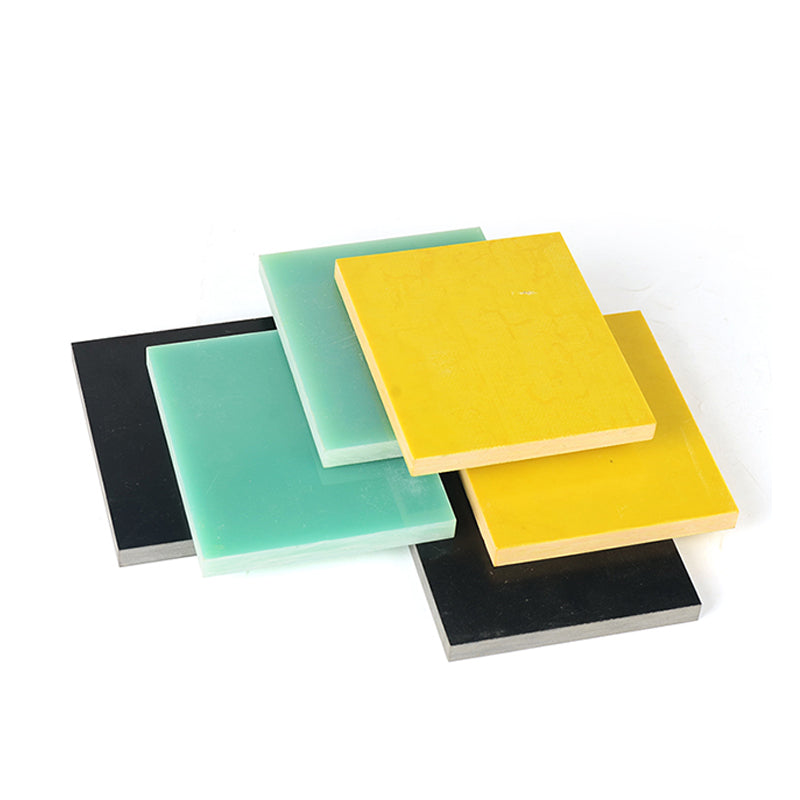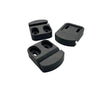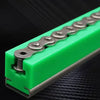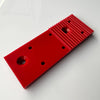ABS Plastic Sheets in Educational and Laboratory Settings: Benefits and Uses
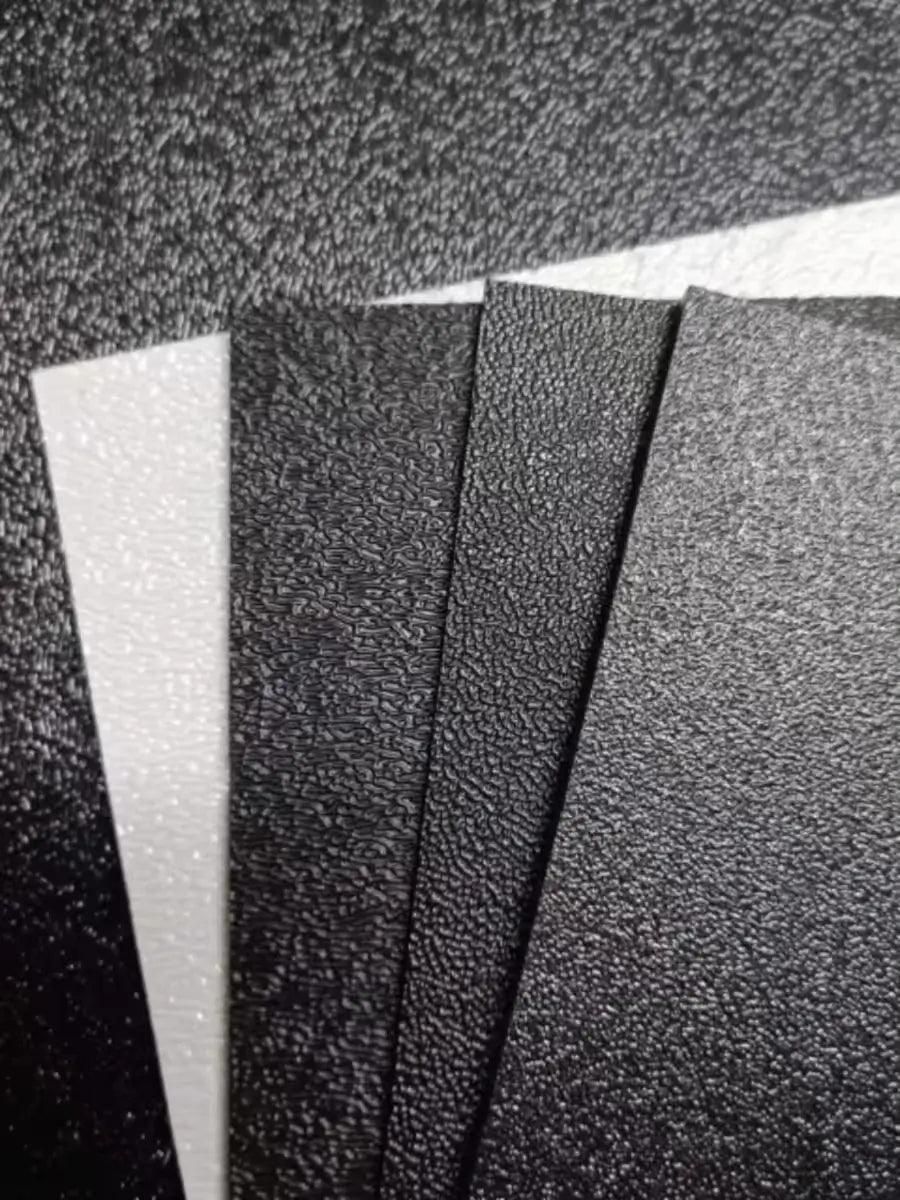
Discover the transformative power of ABS plastic sheets in educational and laboratory environments. This comprehensive guide covers everything from the basic characteristics of ABS sheets to their practical applications in student projects and lab equipment. Learn how the durability, impact resistance, and ease of fabrication make ABS sheets ideal for creating prototypes, models, and various lab apparatus. Explore innovative ways to use ABS sheets in educational experiments and see real-world examples of schools and universities leveraging this versatile material. Additionally, find out how to choose the right ABS plastic sheet for your needs, considering factors like thickness, color, and finish. Finally, understand the environmental impact and discover sustainable practices for recycling and reusing ABS plastic sheets in your educational institution. This post is your ultimate resource for harnessing the potential of ABS plastic sheets in enhancing learning and research settings.

By addressing these subtopics, this blog post aims to be an invaluable resource for educators, students, and laboratory technicians, highlighting the multifaceted benefits and uses of ABS plastic sheets.
If you have more specific requirements or need further adjustments, please let me know!
ABS Plastic Sheets: Key Characteristics and Advantages in Educational Settings
Durability and Impact Resistance
ABS plastic sheets are renowned for their durability and impact resistance, making them an ideal material for educational environments. These sheets are composed of a blend of acrylonitrile, butadiene, and styrene, which collectively provide a robust structure capable of withstanding heavy use and frequent handling. In classrooms and laboratories where materials are subject to constant wear and tear, ABS sheets offer a reliable and long-lasting solution.
Ease of Fabrication
One of the standout features of ABS plastic sheets is their ease of fabrication. These sheets can be easily cut, shaped, and molded into various forms without compromising their structural integrity. This versatility allows educators to create custom models, prototypes, and educational tools tailored to specific learning objectives. Additionally, ABS sheets can be drilled, machined, and thermoformed, providing limitless possibilities for educational projects and experiments.
Chemical and Heat Resistance
In laboratory settings, materials often come into contact with various chemicals and are exposed to heat. ABS plastic sheets exhibit excellent chemical resistance, ensuring they remain unaffected by most laboratory chemicals. Their heat resistance also allows them to be used in applications where temperatures may fluctuate. This resilience makes ABS sheets a safe and practical choice for constructing lab equipment and protective enclosures.
Lightweight and Easy to Handle
Despite their durability, ABS sheets are relatively lightweight, making them easy to handle and manipulate in educational settings. This property is particularly beneficial for younger students who may struggle with heavier materials. The lightweight nature of ABS plastic also simplifies the installation and transportation of educational displays and laboratory setups, enhancing the overall efficiency of the educational process.
Cost-Effective Solution
ABS plastic sheets are a cost-effective option compared to other materials like metals or specialized polymers. Their affordability does not come at the expense of quality, as they still offer excellent performance and longevity. This balance of cost and durability makes ABS sheets an attractive choice for schools and universities working within budget constraints.
Safe and Non-Toxic
Safety is a paramount concern in educational environments. ABS plastic sheets are non-toxic and safe for use in classrooms and laboratories. They do not emit harmful chemicals or fumes, ensuring a healthy learning environment for students and educators alike. This safety aspect is crucial when considering materials for educational tools and equipment.
By leveraging the durability, ease of fabrication, chemical and heat resistance, lightweight properties, cost-effectiveness, and safety of ABS plastic sheets, educational institutions can significantly enhance their teaching and learning resources. These sheets provide a versatile and reliable solution for a wide range of educational applications, from hands-on projects to advanced laboratory experiments.

ABS Plastic Sheets in Student Projects and Model Making
Versatility in Student Projects
ABS plastic sheets are highly versatile, making them an excellent choice for a wide range of student projects. Whether students are working on science fair displays, engineering prototypes, or art installations, ABS sheets provide a durable and adaptable material that can be easily cut, shaped, and assembled. This flexibility allows students to bring their creative ideas to life, fostering innovation and hands-on learning.
Ideal for Prototyping
In educational settings, prototyping is a crucial step in the design and engineering process. ABS plastic sheets are particularly well-suited for prototyping due to their high impact resistance and ease of fabrication. Students can use these sheets to create detailed models of their designs, testing functionality and making iterative improvements. The ability to quickly modify and refine prototypes using ABS sheets accelerates the learning process and enhances problem-solving skills.
Model Displays
Creating model displays is another area where ABS plastic sheets excel. These sheets offer a smooth surface that can be easily painted and decorated, making them ideal for creating visually appealing displays. Whether constructing architectural models, geographical dioramas, or historical reenactments, ABS sheets provide a sturdy foundation that maintains its integrity over time. Their ability to withstand frequent handling and transportation makes them perfect for classroom presentations and exhibitions.
Convenience of 4x8 Sheets
The 4x8 size of ABS plastic sheets is particularly convenient for educational projects. This standard size provides ample material for large projects while being manageable enough for students to work with. Teachers can cut these sheets into smaller pieces as needed, allowing multiple students to use the material for different aspects of a project. The versatility of the 4x8 ABS sheet size ensures that students have the flexibility to experiment with various dimensions and designs.
Enhancing STEM Education
ABS plastic sheets play a significant role in enhancing STEM (Science, Technology, Engineering, and Mathematics) education. Their practical applications in student projects, prototyping, and model making help bridge the gap between theoretical knowledge and real-world application. By using ABS sheets, students gain hands-on experience in material science, engineering principles, and design thinking, which are essential skills in today's educational landscape.
Cost-Effectiveness and Accessibility
In addition to their practical benefits, ABS plastic sheets are also a cost-effective solution for educational institutions. Their affordability allows schools to provide high-quality materials for student projects without straining the budget. Moreover, the widespread availability of ABS sheets in various thicknesses and colors makes them accessible to a wide range of educational programs and activities.
Safe and Non-Toxic for Classroom Use
Safety is a paramount concern in educational environments. ABS plastic sheets are non-toxic and safe for use in classrooms, ensuring a healthy learning environment for students. They do not emit harmful chemicals or fumes, making them an ideal choice for educational projects that require cutting, sanding, and painting.
By integrating ABS plastic sheets into student projects, educators can provide a robust and versatile material that enhances learning outcomes. The durability, ease of use, and cost-effectiveness of ABS sheets make them an invaluable resource in fostering creativity, innovation, and practical skills in students.

Use of ABS Plastic Sheets in Laboratory Equipment
Workbench Surfaces
ABS plastic sheets are widely used in the manufacturing of workbench surfaces in laboratories. Their robust nature provides a durable and stable platform for conducting experiments and handling equipment. The high impact resistance of ABS plastic ensures that the workbenches can withstand heavy and repeated use without damage. Moreover, ABS sheets are resistant to scratches and dents, which helps maintain a clean and professional appearance in laboratory settings.
Protective Covers
Another significant application of ABS plastic sheets in laboratories is the creation of protective covers for various equipment. These covers shield sensitive instruments from dust, chemical spills, and physical damage. The chemical resistance of ABS plastic makes it an ideal material for this purpose, as it can withstand exposure to a wide range of chemicals commonly used in labs. This protection ensures the longevity and reliability of expensive laboratory instruments.
Storage Containers
ABS plastic sheets are also used to fabricate storage containers for laboratory supplies and chemicals. These containers benefit from ABS's strength and durability, providing a secure solution for storing hazardous materials. The lightweight nature of ABS plastic makes these containers easy to handle and move, which is essential in a dynamic laboratory environment. Additionally, ABS plastic does not react with most chemicals, ensuring that the contents of the containers remain uncontaminated.
Chemical Resistance
The chemical resistance of ABS plastic sheets is a critical factor in their suitability for laboratory use. Unlike some materials that may degrade or react when exposed to chemicals, ABS plastic remains stable, providing a safe and reliable surface for various lab activities. This resistance makes ABS plastic an excellent choice for countertops, fume hoods, and other surfaces that come into direct contact with chemical substances.
Easy to Clean
Maintaining a sterile environment is crucial in laboratories, and ABS plastic sheets contribute to this by being easy to clean. The non-porous surface of ABS plastic prevents the absorption of spills, making it simple to wipe down and disinfect. This property is particularly important in preventing cross-contamination between experiments and ensuring a safe working environment for lab personnel.
Versatility in Design
ABS plastic sheets offer significant versatility in design, which is beneficial for creating customized laboratory equipment. They can be easily cut, shaped, and thermoformed to meet specific requirements. This adaptability allows laboratories to design bespoke solutions that fit their unique needs, whether it's a specialized storage unit or a custom-sized protective cover. The ability to tailor ABS plastic sheets to exact specifications ensures that laboratories can optimize their workspace and equipment efficiency.
Cost-Effective Solution
In addition to their functional benefits, ABS plastic sheets are a cost-effective solution for laboratory equipment. Compared to other materials such as stainless steel or specialized polymers, ABS plastic provides a high-performance alternative at a lower cost. This affordability allows laboratories to equip themselves with high-quality materials without exceeding their budgets, making ABS plastic a practical choice for both academic and commercial labs.
By integrating ABS plastic sheets into laboratory environments, institutions can benefit from their durability, chemical resistance, ease of cleaning, versatility, and cost-effectiveness. These advantages make ABS plastic an invaluable material for enhancing the functionality and safety of laboratory equipment and surfaces.

Innovative Methods for Using ABS Plastic Sheets in Educational Experiments
Constructing Physical Models
ABS plastic sheets are excellent for constructing physical models in educational settings. Students can use these sheets to create detailed replicas of complex structures such as bridges, buildings, and mechanical devices. The durability and malleability of ABS sheets make them ideal for this purpose. For instance, in a physics class, students can design and build scale models of bridges to study load distribution and structural integrity. The 4x8 ABS sheets provide ample material for large projects while being easy to cut and assemble into intricate designs.
Chemical Experiment Apparatus
In chemistry classes, ABS plastic sheets can be used to create experiment apparatus. Their chemical resistance makes them suitable for constructing containers and surfaces that come into contact with various chemicals. For example, students can build custom reaction chambers or fume hoods using ABS sheets. These chambers can safely contain reactions, while the fume hoods help to ventilate harmful gases, ensuring a safe laboratory environment. Additionally, ABS sheets can be used to make durable pipette holders, test tube racks, and chemical storage bins, enhancing the functionality of the laboratory.
Interactive Demonstrations
Teachers can use ABS plastic sheets to create interactive demonstrations that engage students in learning. For example, in a biology class, ABS sheets can be used to construct anatomical models of organs or systems. These models can be painted and labeled, providing a tactile and visual learning aid that helps students understand complex biological structures. In an engineering class, ABS sheets can be used to build functional prototypes of simple machines like levers, pulleys, and gears, allowing students to explore mechanical principles hands-on.
Customized Laboratory Tools
The versatility of ABS plastic sheets allows for the creation of customized laboratory tools and accessories. Educators can design and fabricate unique teaching aids tailored to specific experiments or lessons. For example, custom microscope slides, lab trays, and specimen holders can be made to fit the exact needs of the classroom. These custom tools can simplify experimental procedures and improve the accuracy of results, providing a more effective learning experience.
Safety Shields and Barriers
In classrooms and laboratories where safety is a concern, ABS plastic sheets can be used to create protective shields and barriers. These can include splash guards for chemical experiments, safety screens for machinery, and divider panels for maintaining social distancing. The impact resistance and non-toxicity of ABS plastic ensure that these protective measures are both effective and safe for student use.
Educational Game Boards and Puzzle Pieces
To make learning more interactive and fun, ABS plastic sheets can be utilized to create educational game boards and puzzle pieces. These can be used in various subjects, such as geography, where students can assemble a puzzle map of the world, or in mathematics, where geometric shapes can be used for hands-on learning. The lightweight and easy-to-handle nature of ABS sheets make them ideal for creating durable educational games that can withstand frequent use.
Solar System Models and Astronomy Aids
In astronomy classes, ABS plastic sheets can be used to construct detailed solar system models. These models can illustrate the relative positions and movements of planets, moons, and other celestial bodies. By building three-dimensional representations of the solar system, students can better grasp astronomical concepts and phenomena. Additionally, ABS sheets can be used to create star charts and constellation models, providing visual aids that enhance the study of astronomy.
By incorporating ABS plastic sheets into educational experiments and classroom demonstrations, educators can create innovative and engaging learning experiences. The versatility, durability, and safety of ABS sheets make them an invaluable resource for hands-on education, fostering creativity and practical skills in students.

Practical Applications of ABS Plastic Sheets in Schools and Universities
Enhancing Classroom Infrastructure
ABS plastic sheets have been widely adopted to enhance classroom infrastructure in schools and universities. At Central High School, educators have used ABS sheets to construct durable desks and workstations that withstand heavy daily use. The impact resistance of ABS plastic ensures that these furnishings remain in good condition despite constant handling by students. Additionally, the smooth surface of ABS sheets makes them easy to clean, promoting a hygienic classroom environment.
Laboratory Improvements at University Level
In university laboratories, ABS plastic sheets play a crucial role in improving safety and functionality. At State University, the chemistry department has integrated ABS sheets into their lab setups to create chemical-resistant countertops and fume hood linings. These modifications have significantly reduced maintenance costs and improved the safety of lab personnel by providing a robust barrier against chemical spills and reactions. The ease of fabrication of ABS plastic allows for custom-fit installations that maximize the utility of lab spaces.
Custom Educational Tools and Models
Educational institutions like Greenwood Elementary have utilized ABS plastic sheets to create custom educational tools and models. Teachers have designed interactive geometric shapes and anatomical models using ABS sheets, which provide a hands-on learning experience for students. The lightweight nature of ABS plastic makes these models easy for students to handle, while their durability ensures they can be used repeatedly without damage.
Enhancing Maker Spaces and Innovation Labs
Maker spaces and innovation labs in schools and universities benefit greatly from the versatility of ABS plastic sheets. At Innovation High, the maker space is equipped with custom workbenches and storage units made from ABS sheets. These structures are designed to be modular, allowing students to reconfigure the space as needed for different projects. The cost-effectiveness of ABS plastic makes it an ideal material for schools looking to build or expand their maker spaces on a budget.
Creating Safe and Interactive Play Areas
In early childhood education settings, such as at Sunrise Kindergarten, ABS plastic sheets are used to create safe and interactive play areas. Playground equipment, including slides and climbing structures, are fabricated from ABS sheets due to their non-toxicity and impact resistance. These materials ensure that play areas are not only fun but also safe for young children.
Supporting Visual and Performing Arts
ABS plastic sheets have also found applications in the visual and performing arts departments of educational institutions. At Lakeside School of Arts, ABS sheets are used to create backdrops, props, and set pieces for theater productions. The ease of painting and custom shaping allows for the creation of intricate designs and durable stage elements that can be reused for multiple performances.
Sustainability Initiatives in Educational Facilities
Many educational institutions are adopting sustainability initiatives that include the use of recycled ABS plastic sheets. At Eco-Friendly Academy, the administration has implemented a program to recycle old ABS sheets into new educational tools and furnishings. This initiative not only reduces waste but also teaches students the importance of sustainability and recycling.
By leveraging the durability, chemical resistance, ease of cleaning, versatility, and cost-effectiveness of ABS plastic sheets, schools and universities can significantly enhance their teaching and research facilities. These practical applications demonstrate the wide-ranging benefits of ABS sheets in educational settings, fostering a more effective and engaging learning environment.
How to Choose ABS Plastic Sheets for Educational Purposes
Consider the Thickness
When selecting ABS plastic sheets for educational purposes, one of the primary considerations is thickness. The thickness of the sheet will determine its durability and suitability for different applications. For example, thicker sheets (such as 1/4 inch ABS plastic sheets) are ideal for creating sturdy workbench surfaces and heavy-duty storage containers. On the other hand, thinner sheets (like 1/8 inch ABS plastic sheets) are more suitable for lightweight projects such as model making and decorative panels. Understanding the specific needs of your project will help you choose the right thickness.
Color Options and Their Uses
ABS plastic sheets are available in a variety of colors, each serving different aesthetic and functional purposes. Black ABS plastic sheets are often used in applications where a sleek, professional look is desired, such as in laboratory equipment and protective covers. White ABS plastic sheets are commonly used in educational displays and interactive boards due to their clean appearance and ability to reflect light well. Additionally, colored ABS sheets can be used to create engaging educational tools and models that capture students' attention.
Surface Finish and Its Importance
The surface finish of ABS plastic sheets plays a crucial role in their application. A glossy finish provides a smooth, reflective surface that is easy to clean and aesthetically pleasing, making it ideal for use in classrooms and laboratories. Matte finishes, on the other hand, offer a non-reflective surface that reduces glare and is preferred for visual displays and interactive models. Textured finishes provide additional grip and are useful for surfaces that require a non-slip property, such as workbenches and tool handles. Choose the surface finish based on the specific requirements of your educational application.
Chemical Resistance for Lab Use
In laboratory settings, the chemical resistance of ABS plastic sheets is a vital consideration. ABS plastic is known for its ability to withstand exposure to various chemicals without degrading, making it suitable for use in lab countertops, fume hoods, and chemical storage containers. This property ensures that the material remains safe and effective in environments where it may come into contact with harsh substances.
Ease of Fabrication and Customization
ABS plastic sheets are highly valued for their ease of fabrication. They can be easily cut, drilled, and thermoformed to meet specific design requirements. This versatility is particularly beneficial in educational settings where custom tools and models are frequently needed. The ability to customize ABS sheets allows educators to create bespoke solutions that enhance the learning experience, from tailored lab equipment to unique classroom displays.
Cost-Effectiveness
Another important factor to consider when choosing ABS plastic sheets for educational purposes is their cost-effectiveness. ABS plastic provides a durable and versatile material at a relatively low cost compared to other engineering plastics or metals. This affordability allows schools and universities to maximize their budget, equipping classrooms and laboratories with high-quality materials without overspending.
Environmental Considerations
Finally, consider the environmental impact of your material choice. Recycled ABS plastic sheets are available and offer a sustainable option for educational institutions. These sheets maintain the same high-quality properties as new ABS plastic while reducing environmental waste. Implementing recycled materials in educational settings not only supports sustainability efforts but also teaches students the importance of recycling and responsible resource management.
By evaluating factors such as thickness, color, surface finish, chemical resistance, ease of fabrication, cost-effectiveness, and environmental impact, educators can make informed decisions when selecting ABS plastic sheets for various educational applications. These considerations ensure that the chosen material will meet the specific needs of the project, providing a safe, effective, and engaging learning environment.

Environmental Sustainability: Recycling ABS Plastic Sheets in Educational Settings
Recyclability of ABS Plastic
ABS plastic sheets are known for their recyclability, making them an environmentally friendly choice for educational institutions. Unlike some plastics that degrade in quality during the recycling process, ABS can be effectively recycled into high-quality products. This means that old or unused ABS sheets can be reprocessed and used to create new educational tools, minimizing waste and conserving resources. Schools and universities can partner with local recycling facilities to ensure that their ABS plastic waste is properly handled and repurposed.
Environmental Impact of ABS Plastic
While ABS plastic is durable and versatile, it is important to consider its environmental impact. ABS is a non-biodegradable material, meaning it does not naturally decompose in the environment. However, the ability to recycle ABS plastic significantly reduces its environmental footprint. By incorporating recycled ABS materials into educational settings, institutions can help mitigate the negative effects associated with plastic waste. Additionally, educating students about the importance of recycling and the environmental impact of materials like ABS can foster a culture of sustainability.
Effective Recycling Practices in Schools
Implementing effective recycling practices for ABS plastic sheets in educational environments involves several steps:
-
Collection and Sorting: Establish designated collection points for ABS plastic waste within the school or university. Educators and students should be informed about the importance of separating ABS plastic from other types of waste.
-
Partnerships with Recycling Facilities: Partner with local recycling facilities that specialize in processing ABS plastic. These facilities can reprocess the collected ABS sheets into new materials, ensuring a sustainable lifecycle.
-
Reuse in Educational Projects: Encourage the reuse of recycled ABS plastic in student projects and classroom activities. Recycled ABS can be used to create new models, tools, and educational aids, demonstrating practical applications of sustainability.
-
Educational Programs: Integrate sustainability education into the curriculum. Teach students about the benefits of recycling ABS plastic and other materials, and involve them in recycling initiatives to promote environmental responsibility.
Case Studies of Successful Recycling Programs
Several educational institutions have successfully implemented ABS plastic recycling programs:
-
Greenwood High School has a comprehensive recycling program where students collect and sort ABS plastic waste. The school partners with a local recycling facility that processes the ABS into new sheets, which are then used for various school projects.
-
At EcoTech University, the engineering department uses recycled ABS plastic to fabricate prototypes and models. The university's sustainability program educates students on the importance of recycling and environmental conservation.
-
Sunrise Elementary incorporates recycled ABS plastic sheets into art and science projects. Students learn about the recycling process and create new educational tools from the recycled materials, promoting a hands-on understanding of sustainability.
Benefits of Using Recycled ABS Plastic
Using recycled ABS plastic in educational settings offers several benefits:
-
Cost Savings: Recycled ABS plastic is often more cost-effective than new materials, helping schools and universities save money on supplies.
-
Environmental Conservation: Recycling ABS plastic reduces the amount of waste sent to landfills and decreases the demand for new plastic production, conserving natural resources.
-
Educational Value: Incorporating recycled materials into the curriculum provides students with practical knowledge about sustainability and environmental responsibility.
By adopting sustainable practices and promoting the recycling of ABS plastic sheets, educational institutions can make a significant positive impact on the environment. These efforts not only reduce waste but also educate the next generation about the importance of sustainability and responsible resource management.

Common Questions and Answers about ABS Plastic Sheets and BeePlastics Customization
1. What are the primary benefits of using ABS plastic sheets in educational settings?
Answer: ABS plastic sheets offer several benefits in educational settings, including durability, impact resistance, ease of fabrication, and chemical resistance. These properties make them ideal for constructing durable models, lab equipment, and protective covers that can withstand frequent use and exposure to various chemicals.
2. How can ABS plastic sheets be used in student projects and model making?
Answer: ABS plastic sheets are versatile materials that can be used to create detailed models, prototypes, and educational tools. They are particularly useful for constructing physical models in science and engineering projects due to their durability and ease of shaping. The standard 4x8 size is convenient for larger projects and can be easily cut into smaller pieces for various uses.
3. Why are ABS plastic sheets suitable for laboratory equipment?
Answer: ABS plastic sheets are suitable for laboratory equipment because of their excellent chemical resistance and ease of cleaning. They can be used to make lab countertops, protective covers, and storage containers that can withstand exposure to chemicals and are easy to maintain, ensuring a safe and clean laboratory environment.
4. How can ABS plastic sheets be effectively recycled in educational environments?
Answer: ABS plastic sheets are recyclable and can be repurposed into new educational tools and furnishings. Schools and universities can establish collection points for ABS plastic waste, partner with local recycling facilities, and integrate recycled ABS materials into student projects and classroom activities to promote sustainability and reduce waste.
5. What customization options does BeePlastics offer for ABS plastic sheets?
Answer: BeePlastics can undertake any customization, including sample customization and batch customization. This flexibility allows clients to receive ABS plastic sheets tailored to their specific needs, whether for educational projects, laboratory equipment, or other applications.
6. What file formats does BeePlastics accept for customization?
Answer: BeePlastics accepts a variety of file formats for customization, including PDF and CAD. This flexibility ensures that clients can submit their designs in the format that best suits their needs, facilitating a smooth customization process.
7. Is there a minimum order quantity (MOQ) for ABS plastic sheet customization at BeePlastics?
Answer: There is no minimum MOQ for ABS plastic sheet customization at BeePlastics. This allows clients to order the exact quantity they need, whether it's a single sheet for a small project or a large batch for extensive use.
8. How does BeePlastics handle the production cycle for custom ABS plastic sheets?
Answer: The production cycle at BeePlastics is carried out according to the amount of orders and the complexity of the process. BeePlastics also communicates with clients in real-time about the production progress, ensuring transparency and timely delivery of customized ABS plastic sheets.
9. Does BeePlastics provide free samples of ABS plastic sheets?
Answer: Yes, BeePlastics supports the provision of free samples of ABS plastic sheets. Customers are only responsible for the shipping costs, making it easier for them to evaluate the quality and suitability of the material for their specific applications.
10. What are some practical applications of ABS plastic sheets in schools and universities?
Answer: ABS plastic sheets are used in a variety of practical applications in schools and universities, including the construction of durable desks and workstations, chemical-resistant lab countertops, custom educational tools and models, and interactive learning aids. Their versatility, durability, and ease of fabrication make them a valuable resource for enhancing educational facilities and learning experiences.
Conclusion
Integrating ABS plastic sheets into educational and laboratory environments offers a multitude of benefits, ranging from durability and chemical resistance to ease of customization and environmental sustainability. These versatile materials enhance the learning experience by providing robust and adaptable solutions for student projects, laboratory equipment, and innovative teaching tools. By leveraging the properties of ABS plastic sheets, educators can create engaging, safe, and cost-effective learning spaces that foster creativity and practical skills in students. As educational institutions continue to prioritize sustainability, the recyclability of ABS plastic sheets further underscores their value, promoting responsible resource management and environmental stewardship. Embracing the diverse applications of ABS plastic sheets can significantly improve educational facilities, making them indispensable in modern educational settings.

Ready to enhance your educational projects and laboratory setups with durable and versatile ABS plastic sheets? Contact us today to discuss your specific needs and get a free sample! Fill out the contact form at the bottom of the page to get started.
-
Posted in
ABS Plastic Sheets, Durable Plastics, Educational Materials, Educational Tools, Laboratory Equipment, Laboratory Safety, Plastic for Labs, Plastic Sheet Benefits

